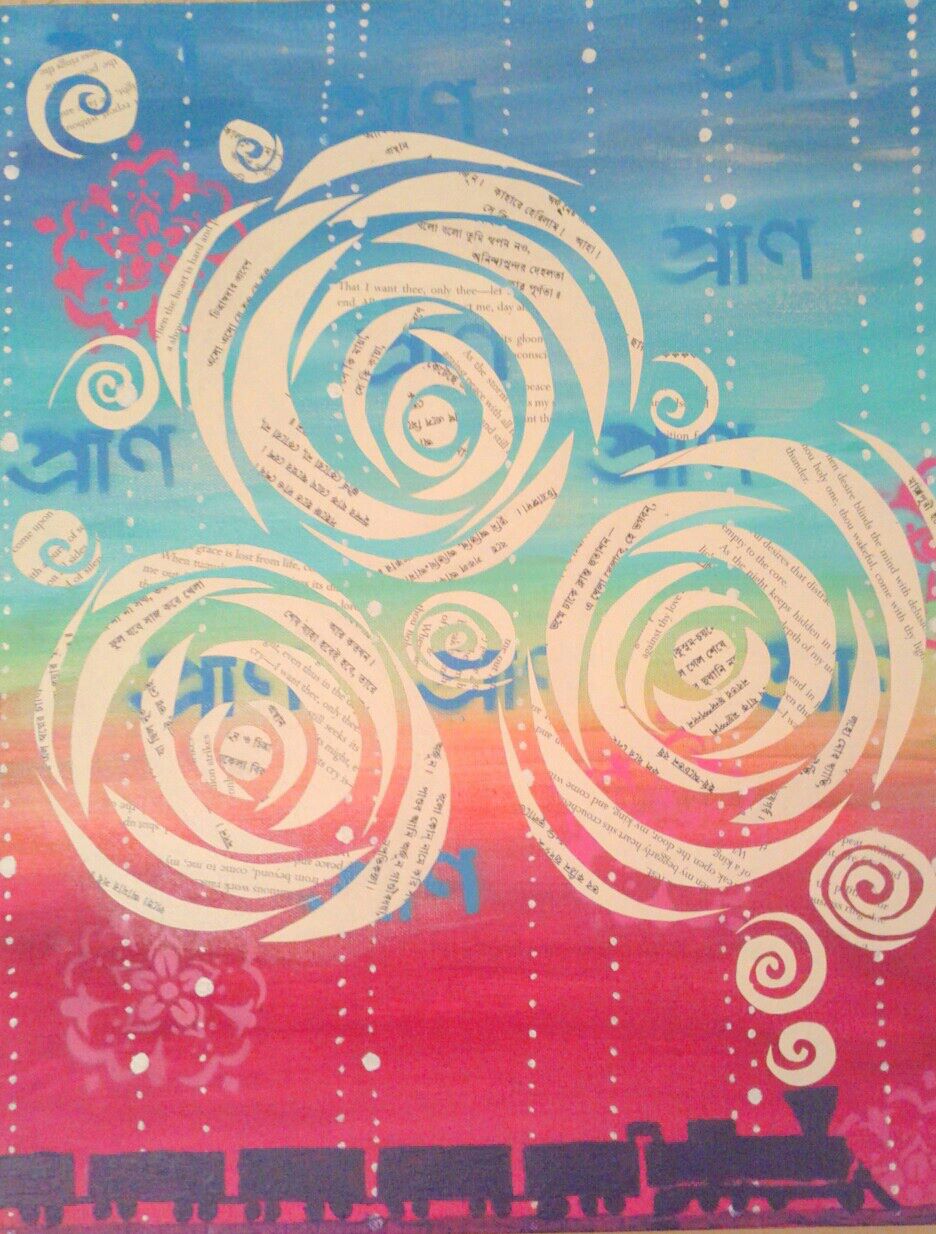
The “blame game” is especially complex in the world of immigrant-bred, western-raised, homes. I don’t think my parents or I am to blame for the way we were both distinctively brought up, and yet it is this very distinction that puts us in constant conflict. I am twenty something years old and I relate to the HBO series, “Girls.” My father is non-western, and sixty-two, so he will never understand that fact. When my father was my age he experienced a revolution that resulted in the independence of a nation. I am upset about the boys who don’t call back.
Edge of Bangladesh
Here’s the thing — last winter, I was terrified, dirty, and shaken on a ferry filled to the brim with foreigners screaming out to each other. We were returning from a trip to St. Martin’s Island, located off the coast of Chittagong in Bangladesh. And as we rocked back and forth, from this island far off and distant, towards the literal edge of the country where our passports and heritage lay, I sat with him. His 60-year-old arms held my 22-year-old hand, and told my terrified self, to bury my head into his shoulders. Once the boat reached shore, he used those same hands to support my weight as I jumped from one ferry to another.
This woman has never felt safer, held any more or less muscularly defined arms, since or before then. I believe in that moment I encountered the act of an evolutionary impulse that kicked in. In the living room of our home in Canada, my father groans as he bends over to tie the laces on his shoes, and in a boat in the middle of the ocean, he fuels the strength to protect his offspring. But Abbu, until I have children, you and I — well, we’re each other’s babies. It is so — in our endearing Bengali language, when I call you, “Abbu” (Father) and you call me, “Ma” (Mother).
Miniskirts
I attribute my feminist roots to the fact that I was raised by a male figure who consistently insisted I could be anything I wanted to be. Anything. Anything, that is, except a girl who wore short skirts and came home late. This is a man whose strong hands cup the back of my neck, the curve where the roots of my hair start, just so, and adoringly rubs, with the intention of reminding me that I am safe, that I am loved. Meanwhile, as my mother comments on my outfit before I walk out the door, he mumbles in disappointment, “the dresses are getting shorter and shorter.” I am shamed, and pull down and tug at the corners of my skirt in embarrassment, fumbling out of the door in silence.
What I Do Know
In December 2012, we reconnected with a family, the parents of whom were old friends of ours — specifically friends of my father. I acknowledged these people as Auntie and Uncle, though there is no blood relation. Their daughter was around my age, and I had not seen her prior to a visit they had made to Montreal years earlier. I remember her as a plump cheery girl, who drew that really pretty sketch that one time we were kids. She had since grown older (as had I), lost all her plumpness (as had I), and in that growth had developed into a beautiful woman, with a movie star grin (as I had not). She had also since eloped with a man who was not Bengali, nor Muslim. This was an all too common phenomenon, with an abundantly unnecessary stigma. Having seen the heights of this stigma manifest itself in experiences within my own family (my brother-in-law is not Bengali, nor Muslim), I had grown very frustrated with any controversy associated to multi-racial partnerships. As far as I was concerned, this was a boring thing to still be worried about. With that in mind, I had always found my uncle to be quite liberal and open-minded. I thought perhaps, in this circumstance, there would be a refreshing absence of stigma.
“Do you think Uncle is very upset about it?” I asked my father. He thought about his answer for sometime and then — in a terribly sad voice he very honestly said, “I don’t know.” By virtue of tone, I gathered what he really meant to say was, “I know I was.” In that moment, like many others, I felt myself sink into sadness, as I saw the transparency of his own pain reveal itself. When hurt tugs at me like that, I get scared, and that fear awakens an anger — a frustration, at the ways his old world mentality was making impossible not only his own happiness, but the happiness of his children as well.
Then there was another short pause, and he continued, “But I do know, that there are no two fathers like your Uncle and I, who could possibly love their children more.”
And just like that — my fathers own hands, the very ones that had pushed me into sadness, caught me just the same from falling too deep. It is my fathers’ propensity for phrases like these that leave me starved for romance in the first world. And so the boys do not call back, and my father and I try to survive the divide of our two lands, my own independence — our own war, in its total absence of any good or bad guys.
Sruti Islam is a lover of the esoteric. Generally bored, sometimes not. Always tug at heartstrings when possible, always aim for kindness, and trust no one.
Tanzila Ahmed is a political activist, writer and artist based in southern California. Her first art exhibit “Maghrib Memories” was in August 2012 in Oakland, California, where she showed pieces that grappled with themes of diaspora, grief, and the in-between.













http://worldofhina.wordpress.com/2013/05/24/what-does-it-mean-to-be-a-muslim/
Wow, great post! Keep on writing, girl!